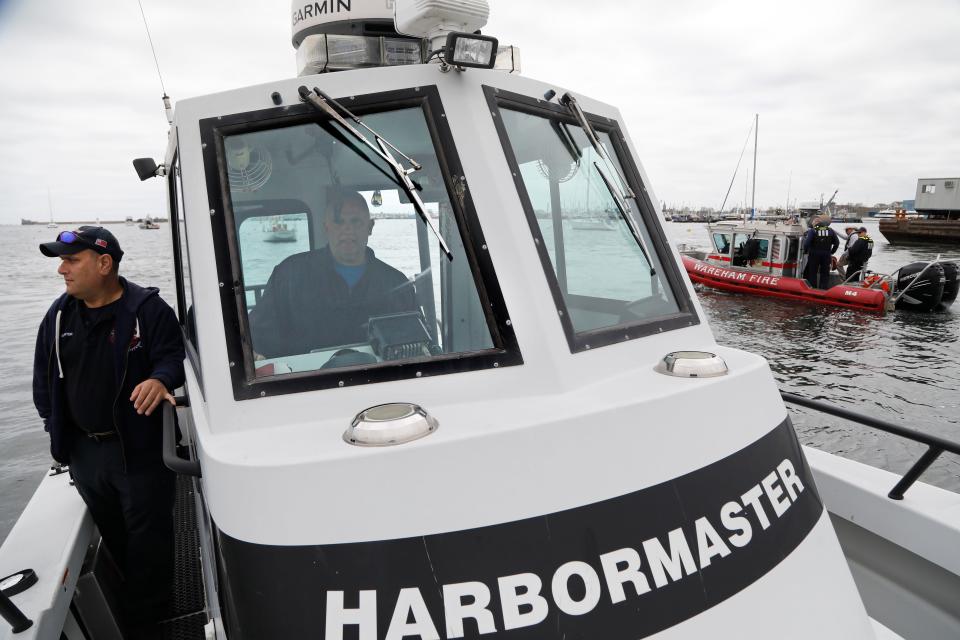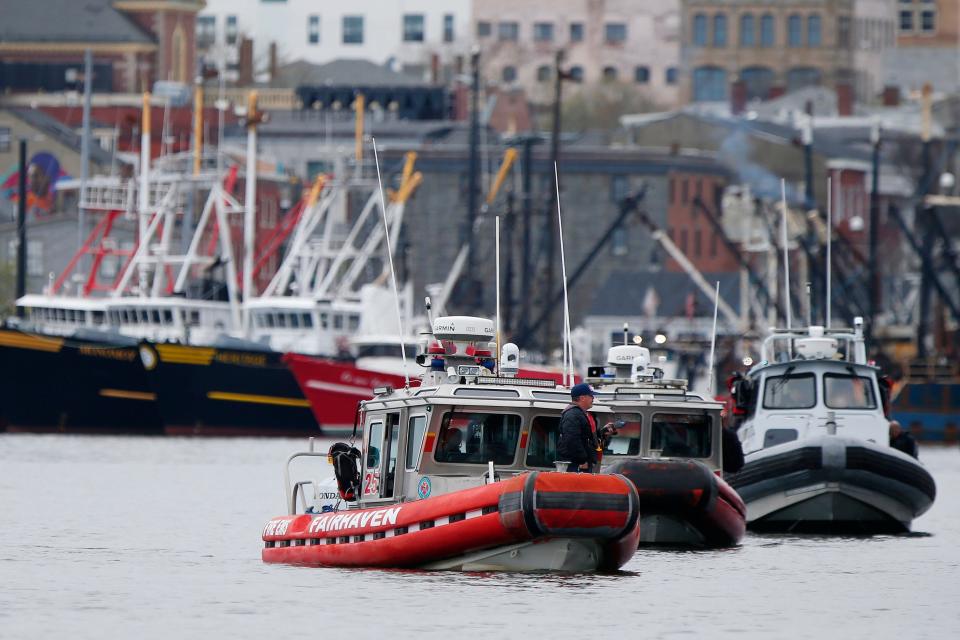New Bedford is now capable of detecting radiation threats. Here's how, and why.
NEW BEDFORD — New Bedford is often pitched to tourists for the opportunity to observe its "working waterfront," and with the coming of things like ferry service and now the offshore wind industry on top of being a bustling fishing port, it's only getting busier. That's one reason why New Bedford has been "on the hunt" in recent years for equipment that would safeguard the city from any potential radiation-related threats coming by sea, says New Bedford firefighter and hazmat coordinator Travis Rebello.
Now, New Bedford and a number of SouthCoast communities will be able to detect any such threats, Rebello said, thanks to equipment and training provided recently through the federal Securing the Cities program.
"It's at zero cost to the city," Rebello said, noting New Bedford got about $150,000' worth of equipment, as well as the in-depth classroom and field training that's been carried out this week by staff from Nevada-based CTOS (Counter Terrorism Operations Support), Rebello said.
"So what we're doing right now is we're driving by different docks and boats that have [radiation] sources on them and ... detecting them from a distance away," Rebello said during an at-sea training session off of New Bedford on Wednesday. Aside from NBFD, other agencies present — which also received equipment — were New Bedford Police Department, Port of New Bedford, Fairhaven Fire Department, Fairhaven Harbormaster, Bourne Fire Department, Acushnet Fire Department, Mattapoisett Fire Department and Marion Marine Patrol, Rebello said.

How will this make New Bedford safer?
As explained by Rebello, radiation detection equipment capable of picking up readings from sources at great distances will be carried by police and fire marine units in the harbor.
"The backpack detectors we got are extremely sensitive," Rebello said.
Keep up with local politics: See who's making their way into Acushnet town government this election season.
If a reading shows radiation levels that would be cause for concern, more advanced equipment will be brought to the scene capable of revealing further information. Usually, at this point, a community would have to wait for state or regional hazmat team members to arrive and conduct that advanced level of screening, but New Bedford will not, Rebello explained.

"What's unique for us is, because myself and the deputy chief [Brian Medeiros] are part of that state system, they allowed us to have that higher level of radiation isotope detection which most of the other departments aren't able to get," Rebello said. "That's what will let us determine, OK, is this an industrial isotope, medical isotope, or if it's special nuclear material. We can start to dissect the situation and figure out if it's something nefarious."
Any shipments legitimately containing radioactive materials will have been registered as such and indicated to authorities ahead of time, Rebello said.
"And it's not just for the harbor," Rebello said, noting the city's new radiation detection capabilities will also be deployed at major events such as the New Bedford Half Marathon and the upcoming Feast of the Blessed Sacrament in August.
"I'm pretty excited about this capability," Rebello said. "The port of New Bedford is getting busier almost yearly ... so being able to rely on this really helps us harden our level of security there like some of the larger ports have been already."
This article originally appeared on Standard-Times: SouthCoast communities score radiation detection equipment, training

